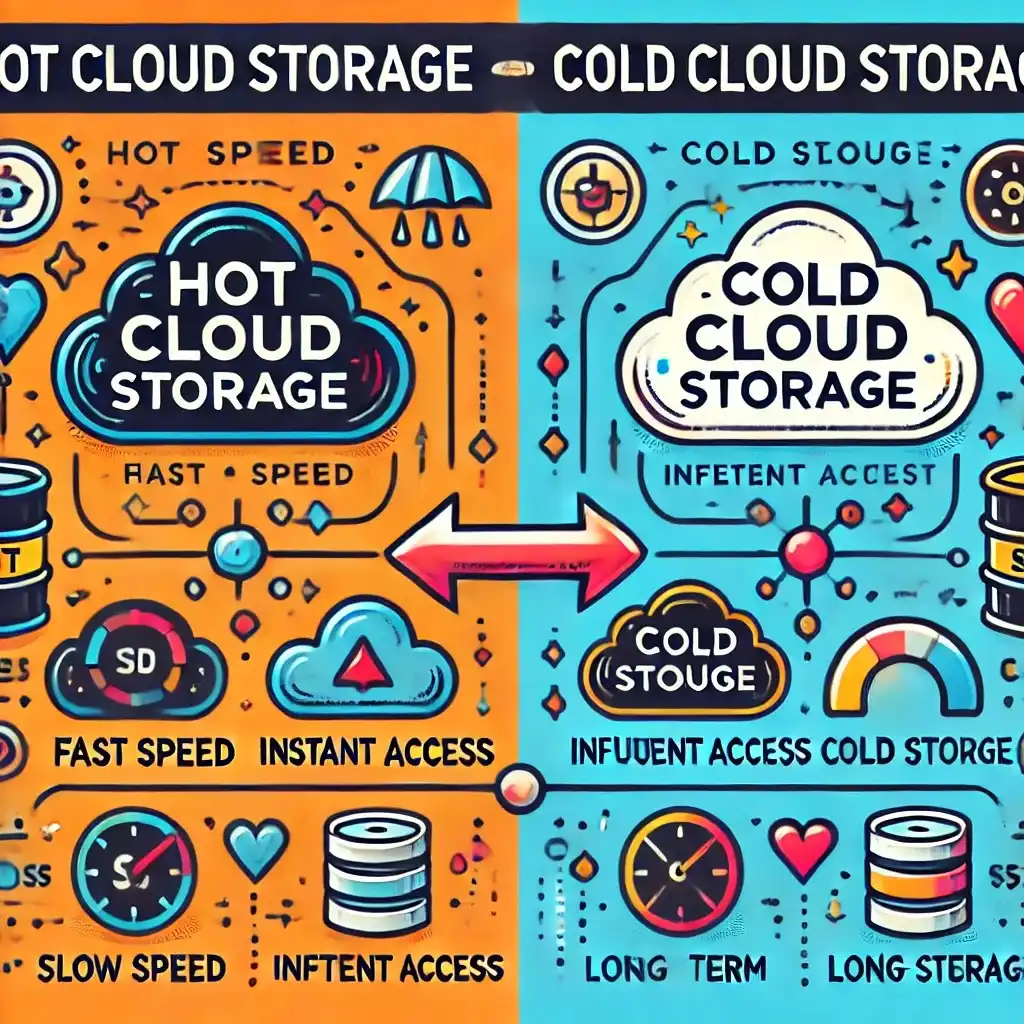Hot cloud storage is an advanced type of data storage solution designed for quick and efficient access to data. As businesses continue to generate vast amounts of data, storing and retrieving it in real-time becomes crucial. In today’s fast-paced digital world, understanding how hot cloud storage works and why it’s beneficial can help businesses and individuals optimize their data management.
What is Hot Cloud Storage?
Hot cloud storage refers to a cloud-based storage solution where data is readily accessible and can be retrieved quickly without any delays. It is typically used for active data—files and applications that need to be accessed and edited frequently. Unlike cold cloud storage, which is designed for long-term data archival with less frequent access, hot cloud storage is ideal for data that needs immediate, real-time access.
The defining characteristic of hot cloud storage is its speed. It allows users to interact with their data instantly, making it suitable for businesses that require constant access to their files, databases, and applications.
Why is Hot Cloud Storage Important?
In today’s digital environment, the ability to access data quickly is key. Hot cloud storage plays a vital role in enhancing operational efficiency for businesses that handle large amounts of data. Here are some of the key reasons why hot cloud storage is important:
1. Real-Time Data Access
Hot cloud storage provides real-time access to data, which is essential for industries such as technology, finance, and healthcare. Companies can use hot cloud storage for running real-time analytics, customer support, or accessing critical business applications.
2. Scalability
As businesses grow, so does their data. Hot cloud storage offers seamless scalability, allowing businesses to add more storage space as needed without any disruption in their operations. This makes it a perfect solution for startups, SMEs, and large enterprises alike.
3. Cost-Effective
Despite offering immediate access to data, hot cloud storage is relatively affordable. With providers like Amazon S3, Google Cloud, and Wasabi, businesses only pay for the storage they use, making it cost-effective for organizations of any size.
4. High Availability
Hot cloud storage ensures that data is available at all times, with high redundancy to prevent data loss. Many cloud storage providers maintain multiple copies of data across different locations to guarantee uptime and minimize the risk of failure.
Key Features of Hot Cloud Storage
Understanding the features of hot cloud storage can help you decide if it is the right solution for your business needs. Some of the key features include:
1. High Performance
Hot cloud storage is optimized for high performance, ensuring that data retrieval times are minimized. This makes it suitable for applications such as content delivery networks (CDNs), data backups, and streaming services.
2. Flexible Pricing
Many cloud providers offer flexible pricing models, meaning you pay only for the storage you use. This flexibility makes it easier for businesses to control costs while still benefiting from instant data access.
3. Security
Hot cloud storage providers often implement strict security protocols, including encryption, to protect data from unauthorized access. This ensures that sensitive information is kept secure, even in the cloud.
4. Global Access
Since hot cloud storage is hosted in the cloud, users can access their data from anywhere in the world. This is especially beneficial for global teams that need to collaborate on projects in real time.
Use Cases for Hot Cloud Storage
Hot cloud storage is incredibly versatile and can be used in a variety of applications across different industries. Some common use cases include:
1. Media and Entertainment
Hot cloud storage is ideal for media companies that deal with large files such as video footage, images, and audio files. Media professionals can upload, edit, and share files instantly without delay, which is crucial for time-sensitive projects.
2. Big Data Analytics
Businesses that rely on big data analytics need fast access to vast amounts of information. Hot cloud storage allows data scientists and analysts to retrieve and process data quickly, ensuring that insights are generated in real-time.
3. Application Hosting
For businesses that host applications in the cloud, hot cloud storage is critical. It ensures that applications run smoothly, with minimal downtime, by providing fast data retrieval for critical functions.
4. E-Commerce
E-commerce businesses rely on hot cloud storage to manage their inventory databases, customer orders, and transaction records. With quick data access, e-commerce companies can provide seamless shopping experiences to their customers.
How Hot Cloud Storage Differs from Cold Cloud Storage
While hot cloud storage is designed for immediate access, cold cloud storage is meant for data that is accessed infrequently. Cold cloud storage is often used for archiving, where data is stored for long periods at a lower cost but with slower retrieval speeds.
- Hot Cloud Storage: Optimized for speed, frequent access, and real-time interaction with data.
- Cold Cloud Storage: Used for long-term storage where data is retrieved occasionally, with slower access times but at a lower cost.
Choosing the Right Hot Cloud Storage Provider
When selecting a hot cloud storage provider, consider the following factors:
1. Performance
Look for providers that offer fast retrieval speeds and high performance to ensure that your data is always accessible.
2. Cost
Compare pricing models to find a solution that fits your budget. Pay attention to hidden fees such as data transfer costs.
3. Security
Ensure that the provider offers strong security measures, including encryption, access controls, and regular audits.
4. Support
Choose a provider that offers reliable customer support and resources to help you troubleshoot issues as they arise.
Conclusion
Hot cloud storage is a powerful solution for businesses and individuals that need instant access to their data. With its scalability, affordability, and high performance, it is becoming the go-to storage option for many industries. By understanding how hot cloud storage works and its advantages, you can better determine if it’s the right fit for your data management needs.










